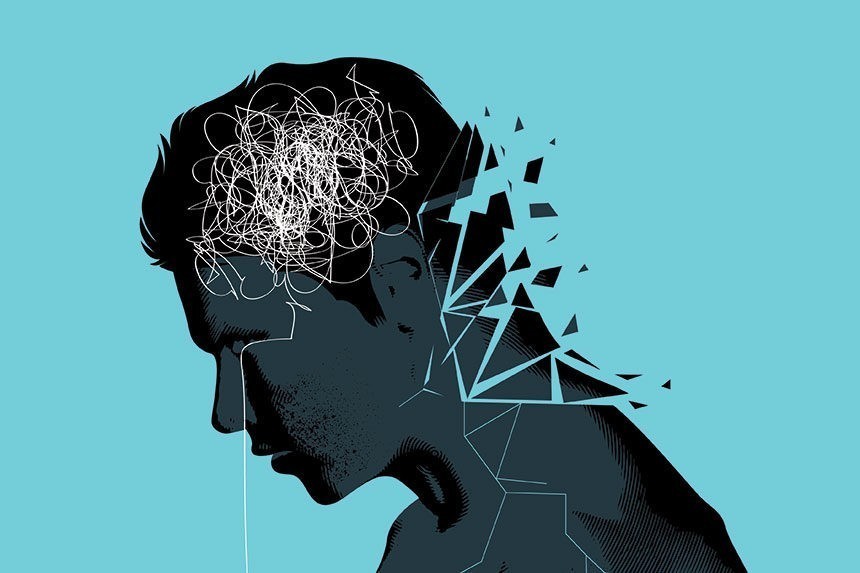The field of therapy is complex and evolving, encompassing not only the emotional burdens faced by practitioners but also the common misconceptions that surround mental health. This article addresses the critical challenges therapists experience, including the emotional weight of their role and the importance of self-care. It also clarifies prevalent myths about mental health, empowering readers to seek help and understand the value of therapy in their lives.
Additionally, the discussion extends to resilience-building strategies for both clients and therapists, ensuring effective coping mechanisms are in place. As digital tools and teletherapy reshape the landscape of mental health care, this article provides insights into the future of therapy, highlighting how technology can enhance accessibility and support. By exploring these topics, readers will gain a deeper understanding of the therapeutic process and the importance of mental well-being.
In this article you will find:
The Emotional Weight of Being a Therapist
Being a therapist is a profoundly rewarding yet emotionally taxing profession. The emotional weight carried by therapists often goes unrecognized, yet it is a significant aspect of their daily work. Understanding this burden is crucial for both practitioners and those seeking therapy. The role demands not only professional skills but also personal resilience and emotional intelligence.
Understanding Emotional Labor
At the core of a therapist’s emotional experience lies the concept of emotional labor. This term refers to the process of managing feelings and expressions to fulfill the emotional requirements of a job. Therapists often find themselves in situations where they must maintain a calm demeanor and provide support, even while grappling with their own emotions.
- Empathy vs. Compassion Fatigue: Therapists must balance empathy—understanding and sharing the feelings of clients—with the risk of compassion fatigue, a state of emotional exhaustion that can arise from prolonged exposure to clients’ trauma.
- Boundaries and Self-Care: Maintaining professional boundaries is essential. However, therapists must also prioritize self-care to prevent burnout and ensure they can provide the best support to their clients.
The Impact of Clients’ Stories
Every client brings a unique story, and the weight of these narratives can be heavy. Therapists often carry the emotional burden of their clients’ struggles, which can lead to feelings of sadness, frustration, or helplessness. This is particularly evident in cases involving severe trauma or chronic mental health issues.
To manage this emotional load, therapists can adopt several strategies:
- Supervision and Peer Support: Regular supervision and consultations with peers can help therapists process their feelings and experiences, providing a safe space for sharing and reflection.
- Mindfulness and Grounding Techniques: Incorporating mindfulness practices can help therapists stay present and manage their emotional responses more effectively.
- Continued Education: Engaging in ongoing education about trauma and emotional health can empower therapists to handle complex cases with confidence and understanding.
The Role of Personal History
A therapist’s personal history can also influence how they handle emotional weight. Many therapists are drawn to the profession due to their own experiences with mental health challenges or trauma. While this can enhance empathy, it may also lead to triggering situations where therapists inadvertently relive their past.
Therapists are encouraged to engage in their own therapy, which can provide them with tools to manage their emotions effectively and maintain their well-being.
Conclusion
The emotional weight of being a therapist is a complex and multifaceted challenge. By recognizing the emotional labor involved, implementing self-care strategies, and understanding the impact of personal history, therapists can better navigate their professional landscape. This not only benefits their own mental health but also enhances the therapeutic experience for their clients.
For further insights on the emotional challenges faced by therapists, consider reading this comprehensive study on the psychological aspects of therapy.
Navigating Common Misconceptions in Mental Health
Mental health is often shrouded in myths and misunderstandings that can hinder individuals from seeking the help they need. As a therapist with 17 years of experience, I have encountered numerous misconceptions that can perpetuate stigma and confusion. This section aims to clarify these misconceptions, provide accurate information, and empower individuals to approach mental health with a more informed perspective.
Myth: Mental Health Issues Are a Sign of Weakness
One of the most pervasive myths is that experiencing mental health challenges signifies personal weakness or a lack of willpower. In reality, mental health disorders are complex conditions influenced by a combination of genetic, biological, environmental, and psychological factors. Just as a person with diabetes or heart disease would not be labeled as weak, neither should someone facing mental health struggles.
Understanding this distinction is vital in reducing stigma and promoting a more compassionate view of mental health. It is important to recognize that seeking help is a courageous step towards healing and not a reflection of weakness.
Myth: Therapy Is Only for Severe Mental Illness
Another common misconception is that therapy is reserved solely for those with severe mental illnesses. While therapy can be crucial for individuals facing conditions such as depression or anxiety, it is equally beneficial for those experiencing everyday stress, relationship issues, or a desire for personal growth. Therapy provides a safe space for individuals to explore their thoughts and feelings, gain insights, and develop coping strategies.
- Emotional Support: Therapy can offer valuable emotional support during challenging life transitions, such as job loss, divorce, or grief.
- Skill Development: Individuals can learn essential skills for managing stress, improving communication, and fostering healthy relationships.
Myth: Medications Are the Only Solution
Many believe that medication is the only effective treatment for mental health issues. While medications can be beneficial for some, they are not a one-size-fits-all solution. Therapy, lifestyle changes, and holistic approaches can also play significant roles in managing mental health.
Integrative approaches that combine therapy with healthy lifestyle choices—such as regular exercise, balanced nutrition, and mindfulness practices—can lead to improved mental health outcomes. Understanding this holistic view encourages individuals to seek comprehensive care tailored to their unique needs.
Myth: Therapy Takes Forever and Is Ineffective
Some individuals fear that therapy will be a never-ending process with little progress. In reality, the duration and effectiveness of therapy depend on various factors, including the individual’s goals, the nature of the issues being addressed, and the therapeutic approach used.
Many people find that they can achieve significant progress in a relatively short time, especially with goal-oriented therapy modalities such as Cognitive Behavioral Therapy (CBT). It’s essential to communicate openly with therapists about expectations and to actively participate in the therapeutic process.
Combating Misconceptions Through Education
Addressing these misconceptions is crucial for fostering a better understanding of mental health. Education plays a pivotal role in demystifying mental health issues and encouraging individuals to seek help when needed. For those interested in learning more about mental health and the importance of seeking support, resources such as the Center for American Progress provide valuable insights and research.
As we continue to challenge these misconceptions, we pave the way for a more supportive and understanding society, ultimately leading to improved mental health outcomes for all.
Building Resilience in Clients and Practitioners
Resilience is a vital trait that enables individuals to navigate life’s challenges and recover from setbacks. In the context of mental health, building resilience is essential not only for clients but also for practitioners. This section delves into effective strategies for fostering resilience, emphasizing its importance in both therapeutic relationships and personal well-being.
Understanding Resilience
Resilience refers to the ability to adapt well in the face of adversity, trauma, or stress. It encompasses various factors, including psychological flexibility, emotional regulation, and a strong support network. For therapists, resilience is crucial for maintaining their own mental health while effectively supporting their clients.
Strategies for Clients
Clients often face overwhelming challenges that can impede their progress in therapy. By implementing resilience-building strategies, therapists can empower clients to manage stress and enhance their coping skills. Here are some effective techniques:
- Cognitive Restructuring: Encourage clients to identify negative thought patterns and replace them with more constructive perspectives. This cognitive-behavioral approach can help clients view challenges as opportunities for growth.
- Goal Setting: Assist clients in setting realistic, achievable goals. Breaking larger goals into smaller, manageable steps can help clients experience a sense of accomplishment and boost their confidence.
- Mindfulness Practices: Introduce mindfulness techniques, such as meditation or deep-breathing exercises, to help clients stay grounded in the present moment and reduce anxiety.
Strategies for Practitioners
Therapists, too, must prioritize their resilience to avoid burnout and maintain effective practice. Here are some strategies specifically tailored for practitioners:
- Regular Supervision: Engaging in supervision provides therapists with an opportunity to discuss their experiences, gain feedback, and receive emotional support from peers.
- Self-Care Routines: Establish a self-care routine that includes physical activity, hobbies, and time for relaxation. A balanced lifestyle is essential for maintaining emotional well-being.
- Continuous Learning: Pursuing ongoing education and training not only enhances professional skills but also boosts therapists’ confidence and resilience in their practice.
The Role of Community Support
Community support plays a crucial role in building resilience for both clients and practitioners. Encouraging connections with friends, family, and support groups can provide a network of emotional support. For therapists, participating in professional communities can foster collaboration and shared learning, creating a sense of belonging.
Furthermore, clients may benefit from group therapy or support groups, where they can share experiences and learn from others facing similar challenges. These connections can significantly enhance feelings of validation and support, which are essential for resilience.
Measuring Resilience
Assessing resilience can help both clients and practitioners identify areas for improvement and track progress. Tools such as the Resilience Scale can provide insights into an individual’s resilience levels and areas that may need more focus.
As clients and practitioners alike embrace resilience-building strategies, they not only enhance their capacity to face challenges but also foster a more positive therapeutic relationship. This collaborative effort ultimately leads to better outcomes in mental health care.
The Future of Therapy in a Digital World
The landscape of therapy is evolving rapidly in response to technological advancements and societal changes. The integration of digital tools into mental health care is not just a trend; it represents a significant shift in how therapy is delivered, accessed, and experienced. This section explores the future of therapy in a digital world, highlighting emerging technologies, their implications for practitioners and clients, and the potential for enhanced mental health care.
Teletherapy: Breaking Barriers
Teletherapy, or online therapy, has gained immense popularity, especially in the wake of the COVID-19 pandemic. This model allows therapists to connect with clients remotely, breaking geographical barriers and expanding access to mental health services. The convenience of teletherapy makes it an appealing option for many individuals, particularly those in underserved areas or with mobility challenges.
Key benefits of teletherapy include:
- Increased Accessibility: Clients can access therapy from the comfort of their homes, making it easier to fit sessions into busy schedules.
- Diverse Options: Clients can choose therapists based on specialization rather than location, allowing for a better match between client and provider.
- Reduced Stigma: The anonymity of online sessions may encourage individuals who might hesitate to seek help in person to engage in therapy.
Digital Tools and Apps
The rise of mental health apps and digital tools is transforming how individuals manage their mental well-being. These tools offer various features, including mood tracking, guided meditations, and cognitive behavioral therapy (CBT) exercises. Some notable applications include:
- Headspace: A meditation app that provides resources for mindfulness and stress reduction.
- Woebot: An AI-powered chatbot that uses CBT principles to help users navigate their emotions and challenges.
- BetterHelp: An online platform that connects clients with licensed therapists via messaging, video, or phone calls.
These digital solutions empower clients to take an active role in their mental health management, providing tools for self-reflection and coping strategies.
Artificial Intelligence in Therapy
The incorporation of artificial intelligence (AI) into therapy is an exciting frontier. AI can assist therapists by analyzing client data, identifying patterns, and offering insights that may not be immediately apparent. For instance, AI-driven analytics can help therapists track progress more effectively and tailor interventions to meet individual client needs.
Additionally, AI can facilitate the development of virtual therapists or chatbots that provide immediate support for individuals in distress. While these tools cannot replace the nuanced understanding and empathy of human therapists, they can offer valuable resources for those in need of immediate assistance.
Ethical Considerations
As the digital landscape evolves, ethical considerations become increasingly important. Therapists must navigate issues such as:
- Confidentiality: Ensuring client data is protected and secure in online settings is paramount.
- Informed Consent: Clients should be fully aware of how their data will be used and the limitations of digital therapy.
- Quality of Care: Therapists must maintain professional standards and ensure that digital tools enhance, rather than detract from, the therapeutic process.
Conclusion: Embracing Change
The future of therapy in a digital world holds immense potential for improving mental health care delivery. By embracing technology, therapists can reach more clients, provide personalized care, and enhance the overall therapeutic experience. As this landscape continues to evolve, ongoing education and adaptation will be essential for both practitioners and clients to thrive in this new era of mental health care.
For further insights on the impact of digital tools in mental health, consider exploring resources from the McKinsey & Company. The articles explore the multifaceted nature of therapy, emphasizing the emotional weight carried by therapists, the common misconceptions surrounding mental health, and the importance of resilience for both clients and practitioners. Therapists experience significant emotional labor, requiring them to balance empathy with self-care to prevent burnout. Understanding misconceptions, such as the belief that therapy is only for severe mental illness, can encourage more individuals to seek help, while resilience-building strategies empower both clients and therapists to navigate life’s challenges effectively.
As therapy continues to evolve in a digital world, teletherapy and mental health apps enhance accessibility and offer innovative support options. Practitioners must prioritize ethical considerations, such as confidentiality and informed consent, while utilizing digital tools to improve care delivery. Embracing technology and ongoing education will be essential for therapists and clients to thrive in this changing landscape, ultimately leading to improved mental health outcomes.




